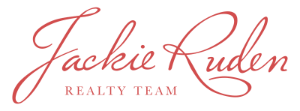Ready to transition from homeowner to seller? Discover the essential steps to transform your property into a market-ready showcase. Understanding the nuances of presentation, pricing, and promotion can significantly impact your selling success. Dive into preparation strategies, including decluttering, repairs, staging, and professional photography, all designed to attract the right buyers and secure the best possible sale price. With expert insights and practical advice, confidently begin your selling process and ensure your property stands out in the competitive market.

Preparing Your Home for Sale: A Comprehensive Maintenance and Repair Guide
Tending to the unseen elements of your home is a critical first step in the selling process. Before potential buyers even set foot in your home, ensure that all operational systems function efficiently. This increases the home’s appeal and value and minimizes the chance of issues arising during home inspections, which can derail or delay a sale.
Here’s a detailed checklist of maintenance and repair items to consider before listing your home:
HVAC System Check: Schedule a professional evaluation of your heating, ventilation, and air conditioning systems. Keeping these systems in optimal condition assures buyers of a well-maintained home and prevents issues during home inspections.
Roof Inspection: Conduct a thorough examination of the roof to identify any potential damage or wear. Repairing or replacing damaged shingles, fixing leaks, and ensuring proper insulation can significantly enhance the appeal of your property.
Plumbing Assessment: Review all plumbing fixtures, pipes, and connections. Fixing leaks, resolving any water pressure issues, and ensuring smooth operation of faucets and toilets can greatly improve the home’s functionality and appeal.
Electrical System Review: Ensure all electrical systems, including outlets, switches, and circuit breakers, are in safe working condition. Upgrading outdated systems and ensuring compliance with current safety standards can be a key selling point.
Foundation Check: Examine the foundation for cracks or signs of movement. Addressing these issues early can prevent future complications and reassure buyers of the structural integrity of your home.
What Upgrades Can Increase The Value Of A Home?
Staging Your Home for Maximum Appeal
Staging your home effectively can make a world of difference in attracting and inspiring potential buyers and securing a favorable sale. It involves strategically arranging furniture, decor, and lighting to showcase your home’s best features and create an inviting atmosphere. Staging your home can prompt potential buyers to imagine themselves living comfortably in the space by highlighting the strengths and downplaying any weaknesses, increasing the likelihood of a sale.
Here’s a focused checklist for staging your home effectively:
Deep Cleaning: A thoroughly clean home is essential. Pay special attention to kitchens and bathrooms, as these areas are crucial in a buyer’s decision-making process.
Neutralizing Odors: Eliminate pet or cooking odors and introduce subtle, pleasant scents. This ensures the home feels fresh and inviting during viewings.
Clutter Minimization: Remove personal items and excess clutter. A clean, streamlined environment is more appealing and makes rooms appear larger.
Neutral Decor Selection: Opt for neutral tones in furnishings and decorations. This helps create a blank canvas, allowing buyers to imagine their own belongings in the space.
Furniture Arrangement: Arrange your furniture to maximize space and flow. Consider removing bulky items to enhance the sense of spaciousness.
Lighting Enhancement: Ensure each room is well-lit, with natural or well-placed artificial lighting. This creates a warm and welcoming atmosphere.
Accentuating Key Features: Highlight the home’s best features, such as fireplaces or built-in shelving, using strategic decor and positioning.
Creating Emotional Appeal: Add small touches like fresh flowers or a fruit bowl to create an inviting, lived-in feel.
Each element is crucial in presenting your home in its best light, significantly influencing potential buyers’ perceptions and decisions.
Enhancing Curb Appeal for a Memorable First Impression
Curb appeal is the visual condition of a property, as seen from the street, playing a pivotal role in establishing a positive first impression for potential buyers. It sets the vibe for the entire viewing experience and can significantly impact a buyer’s initial interest in your property. An appealing exterior suggests a well-maintained home, encouraging buyers to explore further.
Here are vital elements to focus on for boosting your home’s curb appeal:
Landscaping Update: Maintain a neat, well-groomed yard. Trim and shape overgrown bushes, mow the lawn, and remove any weeds or dead plants to present a tidy and cared-for appearance.
Front Door Enhancement: Give your front door a fresh coat of paint or replace it if necessary. The entrance is a focal point and sets expectations for the rest of the home.
Exterior Cleaning: Power wash the home’s exterior, including sidewalks and driveways, to remove dirt and grime. A clean exterior showcases the property’s condition and upkeep.
Outdoor Lighting: Install or update outdoor lighting to enhance safety and create a warm, inviting ambiance. Well-placed lights can also accentuate landscaping and architectural features.
Driveway and Walkway Care: Repair any cracks in the driveway or walkways. A smooth, well-maintained approach to the home adds to the overall impression of quality and attention to detail.
Window Care: Clean all windows thoroughly and repair damaged frames or panes. Sparkling windows not only improve aesthetics but also allow more natural light inside.
Decorative Touches: Add welcoming elements such as potted plants, a new mailbox, or house numbers. These small details contribute to the overall charm and character of your home.
Concentrating on these aspects can significantly enhance your home’s curb appeal, making it more inviting and sets the stage for a successful sale.

Pricing Your Home Accurately for the Market
Setting the price of your home is a delicate balance. Pricing your house too high can deter potential buyers, leading to a more extended stay on the market and possibly necessitating price reductions, which can unfavorably stigmatize your property. On the other hand, pricing too low might result in a quicker sale but can also mean missing out on the full financial potential of your property. It may even raise suspicions about the home’s condition. An accurately priced home attracts the right buyers and sets the stage for optimal sale conditions.
When setting your home’s price, it’s wise to consider the potential for negotiations, your seller’s closing costs, and the closing costs buyers often aim to offset. A slightly higher pricing strategy can provide flexibility during negotiations, allowing you to adjust the price to meet the buyer’s demands without compromising your bottom line. This approach also considers the closing costs, typically including agent commissions, taxes, and other fees. By anticipating these factors, you can price your home in a way that remains attractive to buyers while safeguarding your financial interests.
There are several methods to gauge an accurate price for your home, each offering unique insights.
Online Home Value Calculators: These tools provide a quick and easy way to get an estimated value of your home. They use data like location, size, and recent sales in the area to generate a ballpark figure. While convenient, these calculators should be used as a starting point, as they may not account for unique features or current market trends.
Real Estate Agent’s Assessment with Comparative Market Analysis (CMA): A CMA prepared by a real estate agent is a more personalized approach. It involves comparing your property with similar recently sold homes in your area. This comparison considers various factors such as location, size, condition, and upgrades, providing a more accurate and tailored value assessment.
Professional Appraisal: For an in-depth evaluation, consider hiring a professional appraiser. An appraiser will thoroughly review your property and the local market to determine a fair market value. This method offers a detailed and objective assessment, which can be particularly useful during negotiations with potential buyers.
Other Considerations: Exploring recent local listings and sales can offer additional perspective on your home’s potential market value. Attend open houses in your area to understand how your home compares to the current market. This hands-on research can be invaluable in setting a realistic and competitive price.
Each method brings its own advantages, and combining these approaches can lead to a well-informed decision on pricing your home. It’s important to remember that the market can fluctuate, so staying informed and adaptable throughout the selling process is critical to achieving a successful sale.
What Must You Disclose When Selling a House in Utah?
Maximizing Exposure through Innovative Marketing Techniques
Marketing your home effectively is essential to attract potential buyers and achieve a successful sale. In today’s digital age, combining traditional methods with innovative technology can significantly enhance your property’s visibility and appeal. Here are some impactful marketing techniques to consider:
Professional Photography and Videography: High-quality photos and videos are vital for making a strong first impression online. They capture the essence of your home, highlighting its best features and giving potential buyers a detailed look at the property.
Drone Footage: Drone technology offers a unique aerial perspective of your property, showcasing its layout, surrounding area, and the extent of the land or garden. This bird’s-eye view can be particularly appealing for properties with expansive outdoor spaces.
3D Virtual Tours and Dollhouse Views: These immersive experiences allow people to explore your home digitally. They can navigate the property at their own pace, getting a realistic sense of the space and layout.
Augmented Reality (AR): AR technology can enhance online listings by allowing buyers to visualize changes, like furniture placement or wall colors, within the space, making it easier to imagine the home as their own.
Open Houses and Private Showings: Traditional open houses and private showings provide buyers with a direct experience of the property. They offer the opportunity to explore the home in person and ask questions in real time.
Virtual Tours: Virtual tours can be powerful tools for convenience and broader reach. They allow potential buyers to experience the property remotely, which is particularly useful for out-of-town buyers or those with limited ability to visit in person.
Social Media and Online Listings: Utilizing social media platforms and online real estate listings can significantly increase your home’s exposure. A well-crafted online presence can reach a broad audience quickly and effectively.
Targeted Advertising: Leveraging targeted digital advertising can help reach potential buyers actively searching for properties like yours. This approach ensures your marketing efforts are focused and efficient.
Innovative marketing techniques like these not only increase the visibility of your property but also provide potential buyers with a comprehensive and engaging way to view and appreciate your home. Employing a mix of these strategies can enhance your chances of attracting the right buyer and securing a favorable sale.
Selling A House As-Is: Things to Keep in Mind
Navigating Offers and Negotiations with Confidence
Receiving offers on your home marks a significant milestone in the selling process. It’s important to approach this phase with a clear understanding of what to look for in offers and how to navigate negotiations effectively.
Evaluating Offers: When you start receiving offers, assess them based on the price and several factors. Consider the buyer’s financial qualifications, the earnest money deposit, and any contingencies they have included, such as the need to sell their current home or obtain financing. Also, pay attention to the proposed closing date and any special requests or inclusions.
Negotiating Offers: Negotiation is an art, and it’s essential to remain flexible and firm. If an offer is close to your asking price but not quite there, or if there are terms that are not favorable to you, don’t hesitate to counteroffer. This can include adjusting the price, changing the closing date, or modifying contingencies.
Understanding Buyer’s Perspective: Try understanding the buyer’s perspective and motivations in negotiations. This can provide valuable insight into what’s important to them and where there might be room for compromise.
Communication is Key: Establish open and transparent communication with the buyers through your real estate agent. Timely responses to offers and counteroffers keep the process moving and signal your seriousness about the sale.
Legal and Financial Considerations: Understanding the legal and financial implications of any offer is crucial. Consult with your real estate agent or a legal professional to ensure that all aspects of the offer and counteroffers are clear and that your interests are protected.
Remaining Objective: Selling a home can be emotional, but staying objective during negotiations is important. Focus on your ultimate goal of selling your home, and be prepared to make some compromises.
Finalizing the Deal: Once you reach an agreement, ensure all terms are clearly outlined in the contract and that both parties fully understand and agree to these terms. This is the final step before moving towards closing the sale.
Navigating offers and negotiations can be complex, but with a strategic approach and a clear understanding of your priorities, you can successfully move through this phase toward a successful sale.

Pre-Appraisal Guide for Home Sellers
Sealing the Deal: Steps After Accepting an Offer
Once you accept an offer on your home, several critical steps ensue before you can officially close the sale. Understanding this phase ensures a smooth transition to the closing table.
Title Check and Transfer: The first step is thoroughly examining your home’s title. This process verifies that you have the legal right to sell the property and checks for any liens or claims against it. Resolving any issues that arise is crucial for a clear transfer of the title to the buyer.
Home Appraisal: Typically requested by the buyer’s lender, a home appraisal determines the property’s market value. This ensures the lender is not financing more than the home is worth. If the appraisal comes in lower than the selling price, it may require renegotiating the sale price or the buyer making up the difference.
Home Inspection: The buyer will arrange a home inspection to assess the property’s condition. This inspection can reveal any necessary repairs or issues that might not be apparent. Depending on the findings, this might lead to further negotiations or repair requests before the final sale.
Potential Survey: A survey may be conducted in some cases, especially for properties with unclear boundaries. This process maps out the exact dimensions and boundaries of the property, ensuring that everything is as represented.
Final Walkthrough: Just before closing, the buyer will typically conduct a final walkthrough of the property, ensuring that the home is in the agreed-upon condition and that any agreed-upon repairs have been completed.
Closing Preparations: As the closing date approaches, you must prepare all necessary documentation and finalize any closing details. This includes ensuring that all financial transactions and paperwork for the title transfer are ready.
Set the Asking Price Right for Selling Your House
Closing Day: The Final Step in Your Home Sale Journey
Closing day is the culmination of your home selling process, where the property ownership transfer officially occurs. It’s a critical day that requires preparation and understanding of what to expect.
Preparation: Before closing day, ensure all necessary documents are in order, and any required repairs or conditions stated in the contract have been fulfilled. Your real estate agent can guide you through what specific documents you’ll need, which typically include the deed, bill of sale, and any other required affidavits.
Final Walkthrough Confirmation: The buyer may conduct a final walkthrough of the property, typically a day before or the morning of closing day. This is to ensure that the property is in the agreed condition and that all terms of the sale agreement have been met.
Closing Location: The closing usually occurs at a neutral location, such as the office of a title company, escrow agent, or attorney. In some cases, it might be conducted virtually.
Participants: Key participants typically include the buyer and seller, their respective real estate agents, and a closing agent. Attorneys may also be present, especially if the transaction is complex or either party prefers legal representation.
The signing of Documents: A significant part of the closing day involves signing legal documents. These include the HUD-1 Settlement Statement (which itemizes services provided and the fees charged), the deed (transferring ownership from seller to buyer), and the closing disclosure (detailing the loan terms, monthly payments, and other financial specifics for the buyer).
Finalizing the Sale: After signing and exchanging all documents, the closing agent will register the new deed in the buyer’s name. The seller receives payment for the home, typically through a cashier’s check or via electronic transfer.
Key Exchange: Once everything is finalized and all documents are signed, you will hand over the keys to the new owner. This symbolic act marks the official transfer of ownership.
Closing day is a formal yet celebratory occasion, marking the success of your home-selling journey. It represents the final step in transferring your property to its new owner and moving forward to your next adventure.
Closing Costs When Selling a House in Utah
Selecting the Ideal Real Estate Agent for a Successful Sale
Choosing the right real estate agent is a pivotal decision in the home selling process. An experienced and skilled agent can expertly guide you through each step, from listing to closing, ensuring a smooth and successful sale. Here’s what to consider when selecting a real estate agent:
Experience and Local Market Knowledge: Look for an agent with substantial expertise, especially in your local market. Their understanding of local trends, prices, and buyer preferences is invaluable in effectively pricing and marketing your home.
Marketing Expertise: Your agent should have a proven track record in effectively marketing properties. This includes using a mix of traditional methods and innovative technologies, such as professional photography, virtual tours, and online advertising.
Communication Skills: Choose an agent who communicates clearly and promptly. Regular updates and easy accessibility are crucial for a stress-free selling experience.
Reputation and Reviews: Research potential agents online. Look for reviews and testimonials from previous clients to gauge their reputation and the quality of their service.
Negotiation Skills: A skilled negotiator can make a significant difference in your home’s terms and final sale price. Inquire about their negotiation strategies and success rates.
Professional Network: An agent with a robust professional network can facilitate various aspects of the selling process, from staging and repairs to legal and financial services.
Personal Rapport: Choosing an agent you feel comfortable working with is important. Trust, mutual respect, and understanding are critical to a successful partnership.
By carefully selecting a real estate agent who aligns with your needs and goals, you can navigate the complex process of selling your home confidently and efficiently, ensuring a favorable outcome.

List with Jackie Ruden Realty Team
Embarking on Your Home Selling Venture
When you’re ready to take the leap into selling your home, remember that you don’t have to navigate this journey alone. With professional expertise and a commitment to your success, I am here to guide you through every step of the process. From accurately pricing your home to effective marketing strategies and from negotiating offers to the final closing, my goal is to ensure a smooth, efficient, and profitable sale for you. Contact me when you’re ready to embark on this exciting venture, and let’s achieve your home-selling goals together.
Contact Jackie Ruden Realty Team
Give us a call today at (435) 272-7710 to set up a time to discuss your current and future real estate goals in regards to buying a home or buying a property in trust. We look forward to working with you to make your goals a reality.





